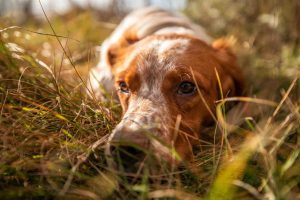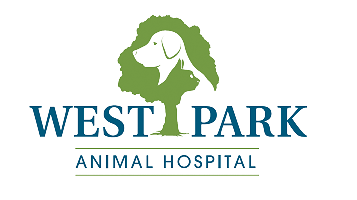Patella Luxation Treatments in Cleveland, Ohio
 Dogs with a luxating patella are evaluated and treated by our veterinarian team at West Park Animal Hospital. This type of kneecap dislocation most often affects smaller breeds but is also seen in agility dogs and other larger breeds. The experienced, caring veterinarians at West Park Animal Hospital serve dog owners in the Cleveland, Ohio area, including West Park, North Olmsted, Berea, Rocky River, Lakewood, Fairview Park, and other surrounding areas.
Dogs with a luxating patella are evaluated and treated by our veterinarian team at West Park Animal Hospital. This type of kneecap dislocation most often affects smaller breeds but is also seen in agility dogs and other larger breeds. The experienced, caring veterinarians at West Park Animal Hospital serve dog owners in the Cleveland, Ohio area, including West Park, North Olmsted, Berea, Rocky River, Lakewood, Fairview Park, and other surrounding areas.
What Is Patellar Luxation?
The patella is the kneecap; It is a small bone located within the tendon of the quadriceps muscles (thigh muscle). The patella fits into a groove in the femur, or thigh bone. Patellar luxation can occur on one or both knees during flexion. This is when the kneecap becomes dislocated, popping out from the femoral groove (trochlear groove). While the patella can be restored within its groove, sometimes with the quick shake of a leg, there are increased chances of it sliding out again. This injury can become chronic and debilitating.
If the patella dislocates several times or more, the beginning stage of arthritis may develop. Luxating patella in dogs can be found during all stages of development, including puppies.
How Is Patellar Luxation in Dogs Diagnosed?
Owners may notice their dogs skipping a step or two, showing a brief lameness in the rear leg by holding it up. This can be the first sign of patellar luxation. You may notice your dog shaking or kicking out the leg to realign the kneecap. Sometimes the condition is related to trauma, but more often it is considered to be a genetic predisposition related to the formation of the hip, femur, tibia, and/or patellar ligament.
Signs of Patellar Luxation
Observing lameness in your dog is one sign of patellar luxation. If left untreated, this condition may become continuous. Puppies may present with wide, bowed rear legs, which worsens as they grow. Other signs include knees that sag in towards each other.
Diagnosis of Patellar Luxation
Your veterinarian can often diagnose patellar luxation by manually palpating the kneecap. Further diagnostic tests, such as X-rays, may be performed to determine the extent of the dislocation, and the condition of the ligaments and joints, and to help plan treatment options. These diagnostic tests may include:
How Can Patellar Luxation Be Treated?
The severity of the luxating patella determines which treatments are appropriate. If the condition is mild, rest and anti-inflammatory medications may be prescribed. It will be important to keep your dog at a healthy weight. The level or type of exercise that the dog receives may be restricted. Your veterinarian may recommend joint supplements or rehabilitation.
If the patellar luxation is more severe, surgery may be recommended. Options range from reconstructing tissues around the kneecap, deepening the femoral groove, realigning the tibial tuberosity, and reshaping the femur. Treatment may consist of one or more of these surgical interventions. The prognosis for most dogs following surgery is very good, and our caring team at West Park Animal Hospital stays up to date with current veterinary research and practice.
Schedule an Examination at West Park Animal Hospital
If your dog shows signs of lameness or you suspect patellar luxation, make an appointment with one of our veterinarians with a special interest in orthopedics. Determining the cause of your pet’s discomfort is the best way to provide treatments and help them recuperate.
Our caring veterinary team offers customer service that is centered on you and your pet and is focused on providing excellent lifelong care. West Park Animal Hospital treats a variety of orthopedic conditions, including patellar luxation in dogs, in the Cleveland, Ohio area, including West Park, North Olmsted, Berea, Rocky River, Lakewood, and Fairview Park. Let our experienced doctors and veterinary team help you and your dog. Contact us today.
SERVICES
Thank you for your Cleveland Hot List votes. We were voted #1 again for the 5th year in a row! We are happy to continue to serve the community and appreciate your support.




